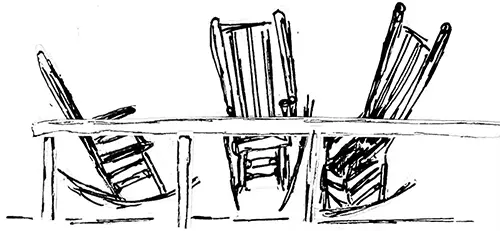Mark Anthony Signorelli is an essayist, playwright, and poet, who is committed to reviving the old ways of writing essays, plays, and poems. He has spent a very large portion of his life producing work in such highly unfashionable genres as the traditional "fourteener" ballad and blank-verse tragedy (which may, in part, explain why you have never heard of him). He currently serves as a Contributing Editor for the New English Review, a web journal, where he has written on the poverty and absurdity of contemporary philosophical materialism and on the need to return to the broad tradition of humanist, literary learning. He lived for five years in the seaside town of Ocean Grove, NJ, one of the most charming and distinctive locales on the east coast, where he frequently sat on his very non-figurative front porch, and conversed with his neighbors sitting on their adjacent and equally non-figurative front porch (this is probably his only real qualification to write for FPR). He now resides elsewhere in central Jersey with his wife - like Penelope, a woman of great arete. Visit Mark's website to see more of his writings!
Mark A. Signorelli
Articles by Mark A. Signorelli
Going Home Again? Not Likely.
If I am correct, it seems there is a certain kind of arch-typical narrative that has become quite popular here at FPR, and in some sense, emblematic of its defense…
The Springs of the Scamander
One of the most memorable passages in the Iliad occurs in Book 22, during the climactic scene when Achilles is chasing Hector around the walls of Troy. As Achilles closes…
Upcoming Poetry Readings
For those readers who might be interested, I've recently published my first collection of poems, Distant Lands and Near, available here. Also, those who are aficionados of traditional poetry might be interested…
A Letter from Old Nick to Candidate Santorum
Sir, I write this letter to protest the public and wholly unwarranted attack on my character you have made during the course of your campaign, and which has only recently…
A Burke for Our Times
Edmund Burke was the greatest master of the English language, not even excepting Shakespeare. It is no doubt a startling claim, but one that I think is highly defensible. The…
A Burke for Our Times
In a wonderful article published here at FPR a few weeks ago, Jason Peters argued that a proper education ought to provoke a kind of spiritual or intellectual crisis among…
A Burke for Our Times
Several weeks ago, at the web journal Humane Pursuits, James Banks published an article entitled “Community as We Know It, Not as We Wish It,” which was largely a response…
Democracy and Coercion
Like other readers here at FPR, and across the web, I have been following the Great Salyer/Carter Debate of 2012 with much interest. I thought Mr. Salyer’s original article was…
A Tale of Two Symbolic Systems
I am angry with my friend; he has betrayed a secret of mine perhaps, or maybe instead he has formed an intimacy with persons he knows to be my enemies. …
Vico on Probable Knowledge
I would submit that the new conception of rationality we need is really the old one, the humanist one.
Thoughts on the British Riots
They do not smash shop windows to get their hands on plasma televisions, because their parents' wealth makes such toys readily available to them, but they really have no greater…
My Nephew Jonathan
What I wish for Jonathan is a culture rooted in that wonder and humility which fecundates all authentic wisdom; a culture directed by the grand human imperative of conjoining our…
Poetry and the Common Language
This piece was originally posted at the University Bookman. Check out their site for other similar articles! --- If there is one principle which is nearly axiomatic among our contemporaries…
The Moral Implications of Dictionaries
I suppose we all grow unduly annoyed at times with certain cultural foibles which are really quite trivial in comparison with the dire and momentous crises which are rapidly…
A City upon a Hill
Conservatives are awfully fond of referring to America as a “city upon a hill;” it would be a wonderful thing if they actually made some attempt to understand what that…
The Song of Taillefer
Somerset, NJ. Legend has it that on the field of Hastings, as the forces of the Conqueror ascended a hill to engage the exhausted army of Harold II, a certain…
Two Literary Journeys
We have, until this day, indulged in our individualistic reveries, imagining that we are always free to “light out for the Territory” and leave the ills of communal life behind…
What is it Like to be a Man?
And nowhere, not in so much as a page of this literature, does one discover even the beginnings of an answer to the question, “what is it like to be…
The Jurisdiction of Science
They have no objections to non-scientists writing on evolutionary topics, so long as they do so in the proper spirit of submissiveness and adulation.
Self-Esteem v. Standards
The fundamental reason why American children are not educated properly is simply because the American people do not want their children to be educated properly.

